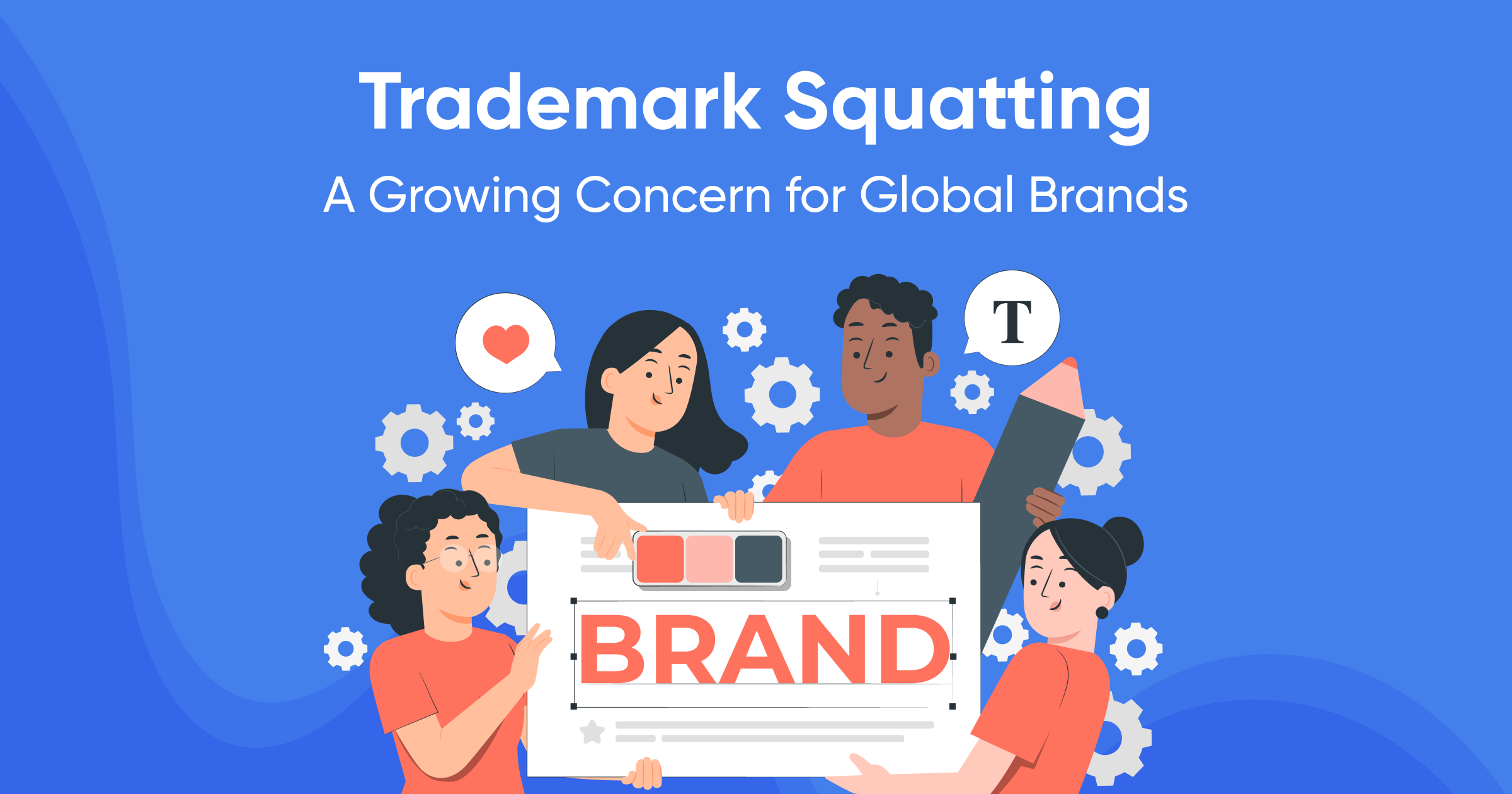Introduction
In the era of globalization, where brand identity is a powerful asset, trademark squatting has emerged as a serious issue. This practice, where individuals or companies register well-known brands’ trademarks in a country to exploit them, poses significant risks, especially in fast-growing markets like India.
For global brands looking to expand, trademark squatting threatens their reputation, legal standing, and operational ability in new markets. Understanding the impact of trademark squatting and ways to counter it is essential for companies entering the Indian marketplace.
What is Trademark Squatting?
Trademark squatting occurs when a party, without permission or genuine intent to use the brand, registers a trademark identical or similar to that of an established brand. These squatters often hope to sell the trademark rights back to the brand owner at a premium, profit from licensing deals, or even use the trademark to deceive consumers.
In some cases, the squatting party may only intend to block the original brand's entry into the market.
Why is Trademark Squatting a Growing Issue?
As brands expand internationally, they often overlook registering their trademarks in countries where they may plan to operate in the future. This is where trademark squatters take advantage. Trademark squatting has become particularly problematic in markets with large populations and emerging consumer bases, like India, where global brands increasingly seek to establish their presence.
Moreover, digital commerce enables squatters to monitor brand movements globally, making it easier to anticipate and preemptively register popular trademarks.
Trademark Squatting in the Indian Market
In India, trademark squatting poses unique challenges for both local and global brands. Indian trademark laws are first-to-file, meaning the first applicant usually has the upper hand in acquiring rights, regardless of whether they intend to use the trademark. This policy creates loopholes for squatters, who can register trademarks without actual usage, merely to sell or license them to legitimate brand owners.
Moreover, India’s growing digital economy and awareness of global brands have made it a hotspot for squatters who recognize the potential profits of holding popular trademarks hostage. The Indian legal system has adapted by allowing brands to oppose trademark applications based on prior use or bad faith; however, this process can be lengthy and costly, often involving appeals and legal battles.
Real-World Impact of Trademark Squatting on Brands
For global brands, the consequences of trademark squatting can be severe. Many companies face legal delays, higher operational costs, and damage to their brand image. For instance, a luxury brand attempting to enter the Indian market might be forced to purchase the trademark rights from a squatter at a premium or risk operating under a different name. This process can delay product launches, increase marketing costs, and dilute brand identity.
Trademark squatters may also leverage the registered trademark to sell counterfeit or low-quality products under the brand’s name, misleading consumers and affecting the brand’s reputation. Additionally, when brands spend resources on legal battles or rebranding, they divert resources from other business activities, impacting their ability to compete effectively in the market.
Preventive Measures Against Trademark Squatting
To mitigate the risk of trademark squatting, companies should take proactive steps to protect their brands. One crucial step is to Register Trademarks Early in countries with significant market potential, even if immediate expansion plans aren’t on the horizon. By filing trademarks early in India, brands can avoid costly buybacks and lengthy legal disputes.
Monitoring Trademark Registrations is another valuable tactic. By actively tracking trademark applications in relevant markets, brands can identify any misuse of their IP.
Companies should also be aware of International Trademark Treaties such as the Madrid Protocol, which allows for easier registration in multiple countries. Although India is part of this protocol, companies should still conduct local checks to prevent potential issues.
Lastly, Legal Partnerships with IP specialists are crucial for effectively responding to infringement claims. These experts can help brands swiftly contest bad-faith applications and defend their IP. For brands entering the Indian market, legal guidance on the nuances of Indian trademark law is essential for successful trademark protection.
Legal Remedies and Steps for Addressing Trademark Squatting
For companies that find themselves victims of trademark squatting in India, there are several legal remedies. First, brands can file an Opposition during the trademark application’s publication phase, contesting the application on the grounds of bad faith or prior usage. If the squatter already holds the trademark, brands can pursue Rectification to cancel the registration.
In cases where brand owners can demonstrate that the trademark squatter acted in bad faith or with the intent to deceive consumers, the Indian legal system allows for trademark infringement suits. This process, however, can be complex and may require substantial evidence, including proof of prior usage and brand recognition in India.
Trademarkia can provide resources and support for companies facing these legal challenges, helping them navigate trademark opposition and rectification processes efficiently.
How Brands Can Safeguard Against Future Trademark Squatting
Preventing trademark squatting should be an integral part of a brand’s global strategy. By expanding IP strategies to include preventive measures in key markets like India, brands can avoid many of the pitfalls associated with trademark squatting.
Ensuring Comprehensive IP Protection across multiple countries, especially those with growing consumer bases, can minimize risk. Using technology to monitor IP infringement and prioritizing IP awareness within the company can also be effective.
Moreover, brands should consider creating localized branding elements for the Indian market, which not only resonates better with Indian consumers but also discourages squatters who may find it less profitable to target a localized brand.
Building partnerships with local distributors and legal advisors can add a layer of protection, as they can offer insights into market trends and emerging IP threats.
The Role of Digital Platforms in Tackling Trademark Squatting
In today’s digital world, online monitoring has become a valuable tool for detecting and preventing trademark squatting. Brands can use automated IP monitoring tools to track online marketplaces and social media platforms for unauthorized usage.
These tools can help companies identify potential cases of trademark squatting and take timely action. Reporting mechanisms available on major e-commerce sites and social media channels provide an additional avenue for enforcement.
For instance, if squatters are using a brand’s name to sell counterfeit goods online, companies can report the misuse directly to the platform, potentially removing the listings quickly. While this does not replace formal legal action, it provides a temporary solution to protect brand integrity and reduce consumer confusion.
Conclusion
Trademark squatting is a complex and costly issue for brands venturing into global markets, and India is no exception. For businesses, understanding and proactively addressing this challenge is crucial. Through early registration, consistent monitoring, and legal preparedness, companies can protect their brand’s value and ensure a smooth entry into new markets.
Indian trademark laws offer remedies, but preemptive action remains the best defense. Trademarkia offers reliable resources and support to help global brands navigate the Indian IP landscape efficiently. Begin safeguarding your brand today to avoid future complications.







